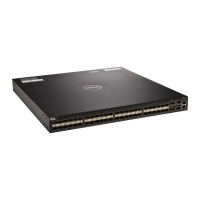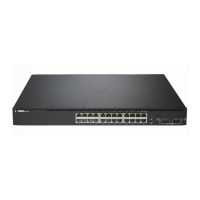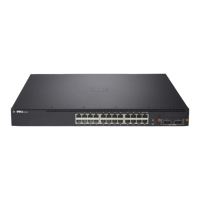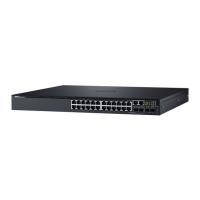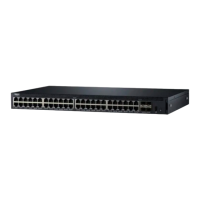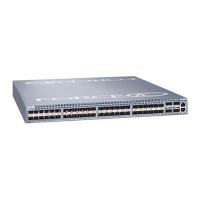244 Managing General System Settings
Per-Port Power
Prioritization
Provides the ability to assign a priority to each PoE port.
When the power budget of the PoE switch has been
exhausted, the higher-priority ports are given preference
over the lower-priority ports. Lower priority ports are
automatically stopped from supplying power in order to
provide power to higher-priority ports.
Per-Port Power Limit Configurable power limit for each PoE-Plus port.
Power Management
Modes
Supports two power-management modes:
• Static—Allows you to reserve a guaranteed amount of
power for a PoE port. This is useful for powering up devices
which draw variable amount of power and provide them an
assured power range to operate within.
• Dynamic—Power is not reserved for a given port at any
point of time. The power available with the PoE switch is
calculated by subtracting the instantaneous power drawn
by all the ports from the maximum available power. Thus
more ports can be powered at the same time. This feature
is useful to efficiently power up more number of devices
when the available power with the PoE switch is limited
Power Detection Mode Allows you to set the mode to legacy or 4-point 802.3AF
detection. Enabling an additional high-power setting will
allow the detection of 802.1at devices.
Powered Device (PD)
Disconnection
Detection Mode
Configurable setting to set the method that determines
when a PD has disconnected from a port:
• AC Disconnect—Assumes that when a valid PD is
connected to a port, the AC impedance measured on its
terminals is significantly lower than in the case of an open
port (disconnected PD)
• DC Disconnect—Measures current consumption to
determine when a PD stops consuming current.
Table 11-4. PoE Plus Key Features (7024P and 7048P Only)
Feature Description
